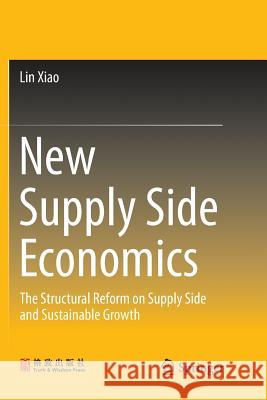New Supply Side Economics: The Structural Reform on Supply Side and Sustainable Growth » książka
topmenu
New Supply Side Economics: The Structural Reform on Supply Side and Sustainable Growth
ISBN-13: 9789811351884 / Angielski / Miękka / 2018 / 325 str.
Kategorie:
Kategorie BISAC:
Wydawca:
Springer
Język:
Angielski
ISBN-13:
9789811351884
Rok wydania:
2018
Wydanie:
Softcover Repri
Ilość stron:
325
Waga:
0.47 kg
Wymiary:
23.39 x 15.6 x 1.8
Oprawa:
Miękka
Wolumenów:
01
Dodatkowe informacje:
Wydanie ilustrowane











